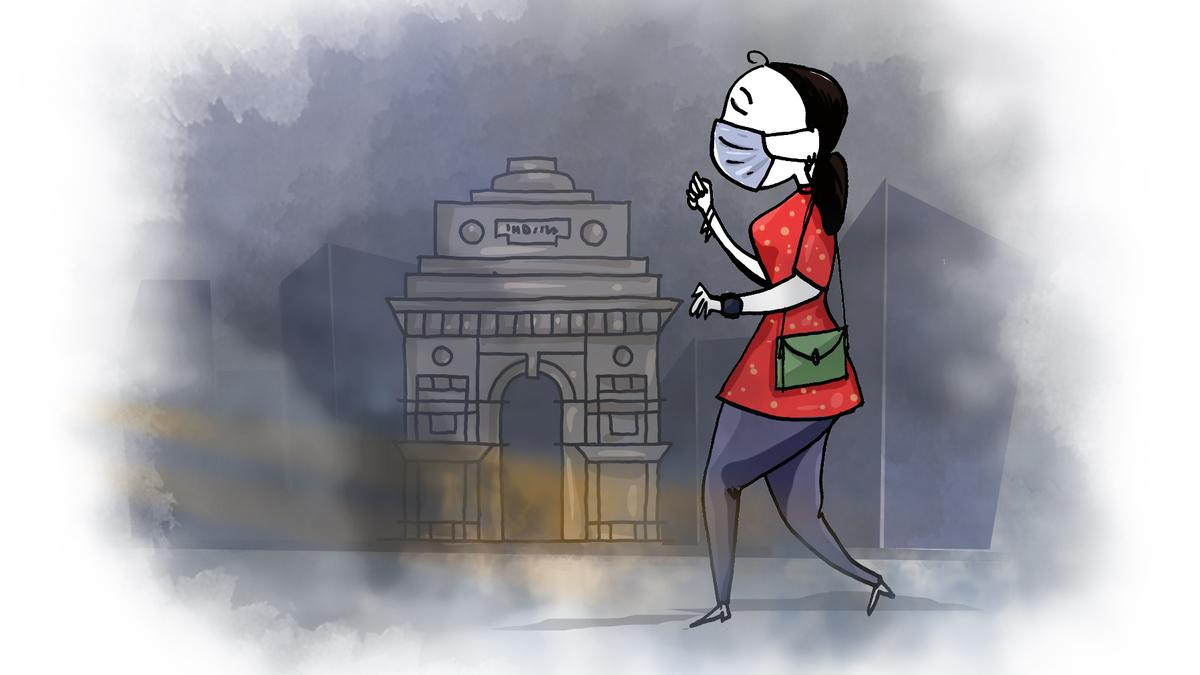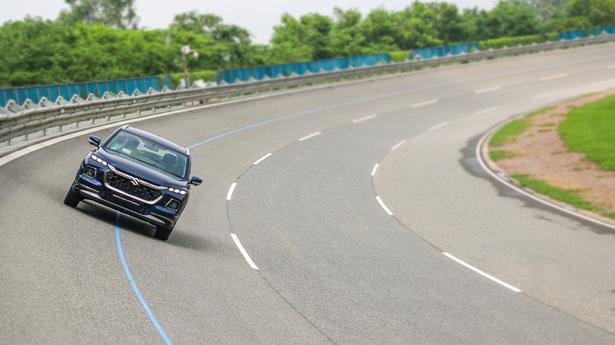The distribution of polluted air across the country is so uneven it surpasses even our world famous economic and social inequalities. Illustration by Sreejith R. Kumar
India is a world champion in air pollution. Every year, in the Winter Olympics, Indian cities, led by our national capital, win gold medals in multiple pollutant categories. Last year, India swept the medals table, winning the gold, silver, bronze and arsenic medals in both categories of Particulate Matter (PM2.5 and PM10). While Delhi also won the gold for ozone and benzene, Noida and Greater Noida won the gold for highest concentrations of carbon monoxide and nitrogen oxides, while Ghaziabad grabbed the gold for peak levels of methane and sulphur oxides.
Unfortunately, despite laurels at the global level, India lacks a Uniform Pollution Code (UPC) that’s enforceable across the length and breadth of the country. As a result, millions continue to be deprived of the basic pleasures that anyone living in Delhi takes for granted. Pollution inequality in India is the highest in the world. The distribution of polluted air across the country is so uneven it surpasses even our world famous economic and social inequalities.
Expectedly, the pattern of deprivation follows a rural-urban divide, with the metros hogging much of the pollution, leaving very little for the folk in the hinterlands. The most famous examples are of Punjab and Haryana, which burn thousands of tonnes of stubble every year. But much of the pollution they produce is sucked up by the National Capital Region (NCR), making a mockery of the federal principles enshrined in the Constitution.
This column is a satirical take on life and society.
No appreciation of humidifiers
Today we have a situation where, on a given winter day when Delhi might have an AQI of 899, a state capital like Imphal or the boondocks like Madikeri would show an AQI in the double digits, like 12 or 17, which is outrageous. But let’s forget the Northeast and small town India, which shouldn’t be difficult given the amount of practice we’ve put in. Even a metro like Chennai has a fraction of Delhi’s pollution levels, leaving Chennaivasis, who anyway have zero knowledge or appreciation of winter, with even less knowledge or appreciation of cutting edge modern technology like air quality monitors and humidifiers.
The other day, for instance, I got a call from a Chennai friend at an odd time. I want to share the brief chat we had just to give you an idea of what I’m talking about.
“Dei,” he said. “You’ve two minutes?”
“Machi, I’ll call you back,” I said. “Winter is coming.”
He was like, “Winter-a?”
“Yes-da,” I said. “It is the name of a season.”
“Season-a?”
“Yep. Winter is the opposite of summer.”
“I thought the opposite of summer is summer only? Like how the plural of sheep is sheep?”
“No-da,” I said. “That’s true in Chennai. In Delhi, we have a separate season called winter. It’s that time of the year when the air turns into smog—”
“And all flights to Delhi get cancelled?”
“Correct.”
“So why can’t you talk if winter is coming? You have an appointment with winter right now?”
“I have an urgent errand,” I said. “I’m stepping out to service my HEPA filter.”
“Hippo-what?”
I hung up at this point. You see how clueless the rest of India is? That’s why it’s disgraceful that in a nation moving rapidly towards One Nation-One Election, One Nation-One Language, and One Nation-One Businessman, no one is talking about One Nation, One Pollution. Why should the air pollution in Meerut be vastly superior to that in Mandaveli? And why no PILs in the Supreme Court seeking a UPC?

How to save a polarised nation
Also, a new study by the Motabhai Institute of Global Eminence (a Dreamed University) found that India’s different communities are not contributing equally to pollution. If we want to save an already polarised nation from further polarisation — this time along pollution levels — then the only solution is to ensure equitable distribution of pollution.
This might seem like a tall order but it’s not. Take a leaf out of the Swachh Bharat Abhiyaan (SBA). We’ve all seen politicians, bureaucrats and even ordinary criminals visit a dirty place, and with a long broom, disperse the dirt evenly across a larger area. The same principle of dispersal could be applied for evenly redistributing northern India’s polluted air to the rest of the country.
It is no longer tenable, nor just, that India’s most precious minority — the luxury SUV driving, fossil-fuel guzzling, frequently flying, shell company-owning, income tax-evading, poor working classes — continue to bear the burden of growing India’s pollution levels. Let us unite and campaign for a UPC and ensure all of India’s air has the same quality as Delhi’s air in peak winter. Jai AQI.
The author of this satire is Social Affairs Editor, ‘The Hindu’.
sampath.g@thehindu.co.in
Published – October 10, 2024 04:59 pm IST




.jpg)
